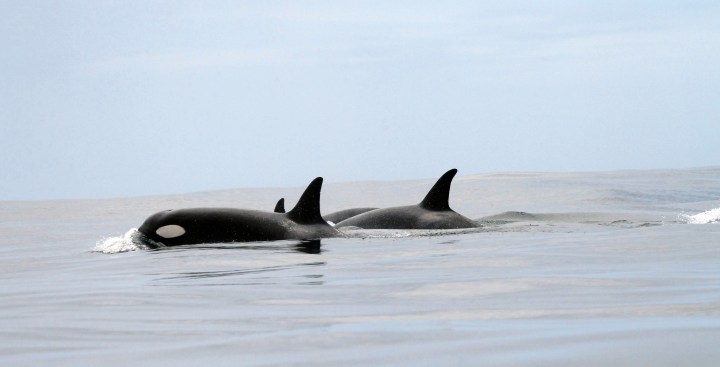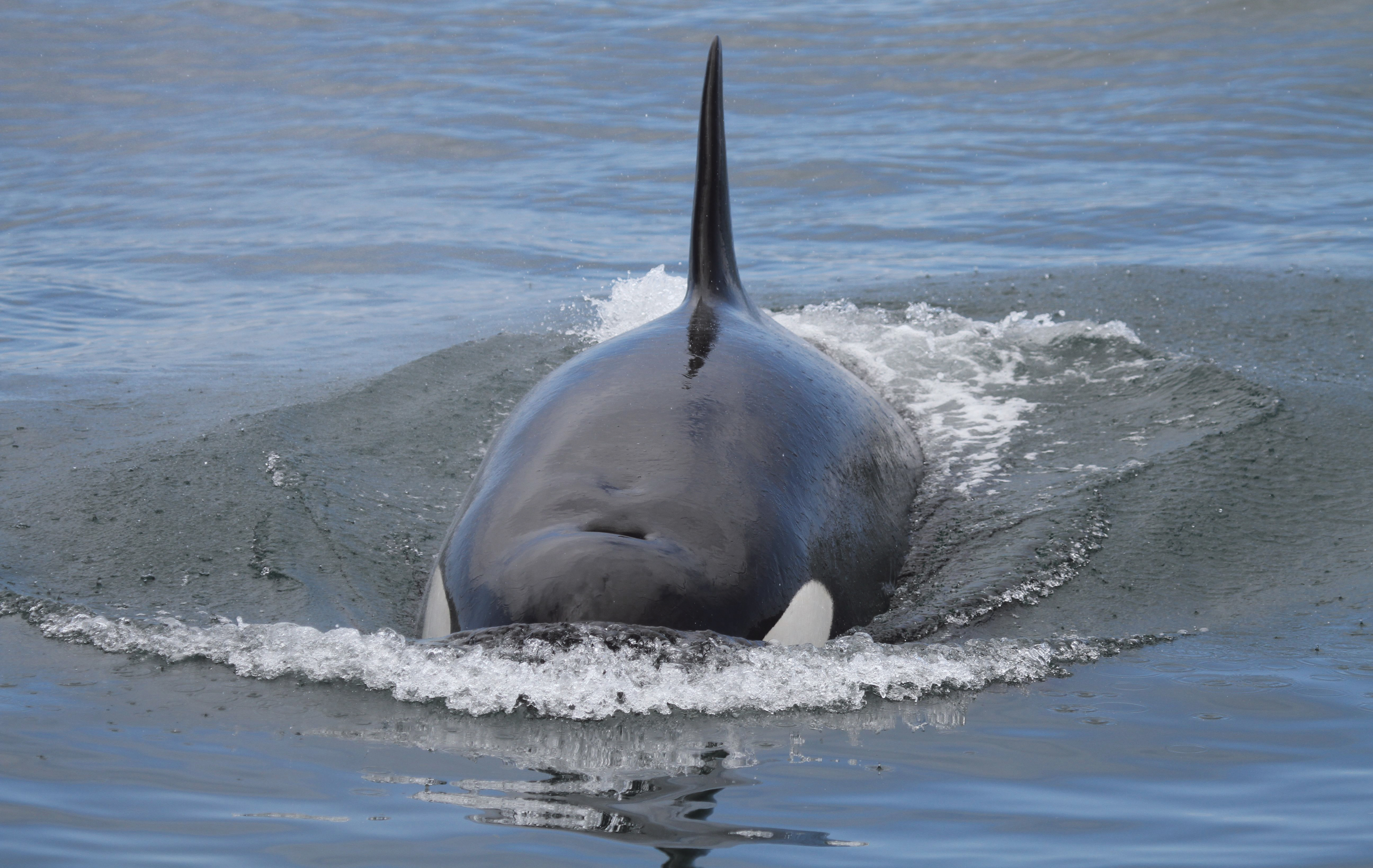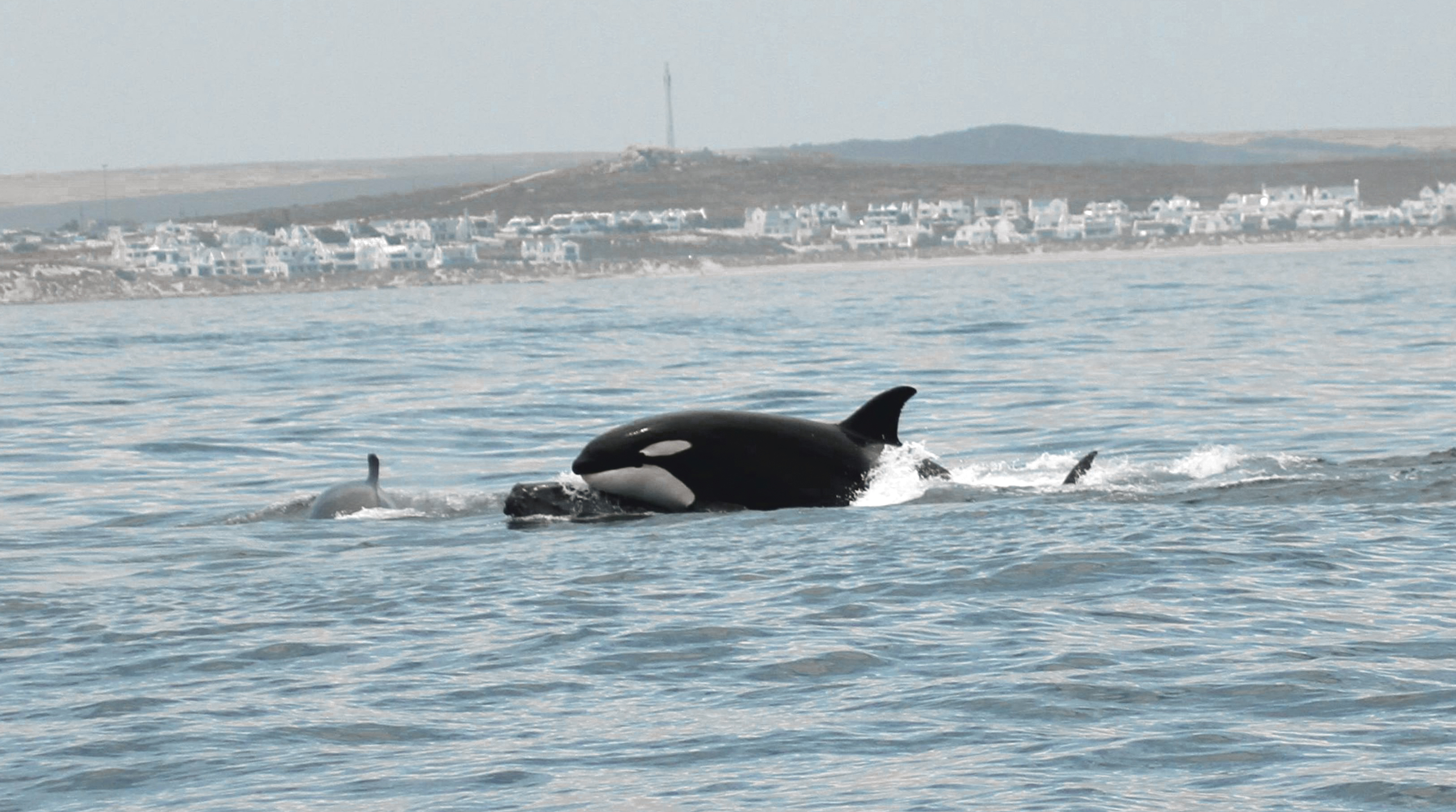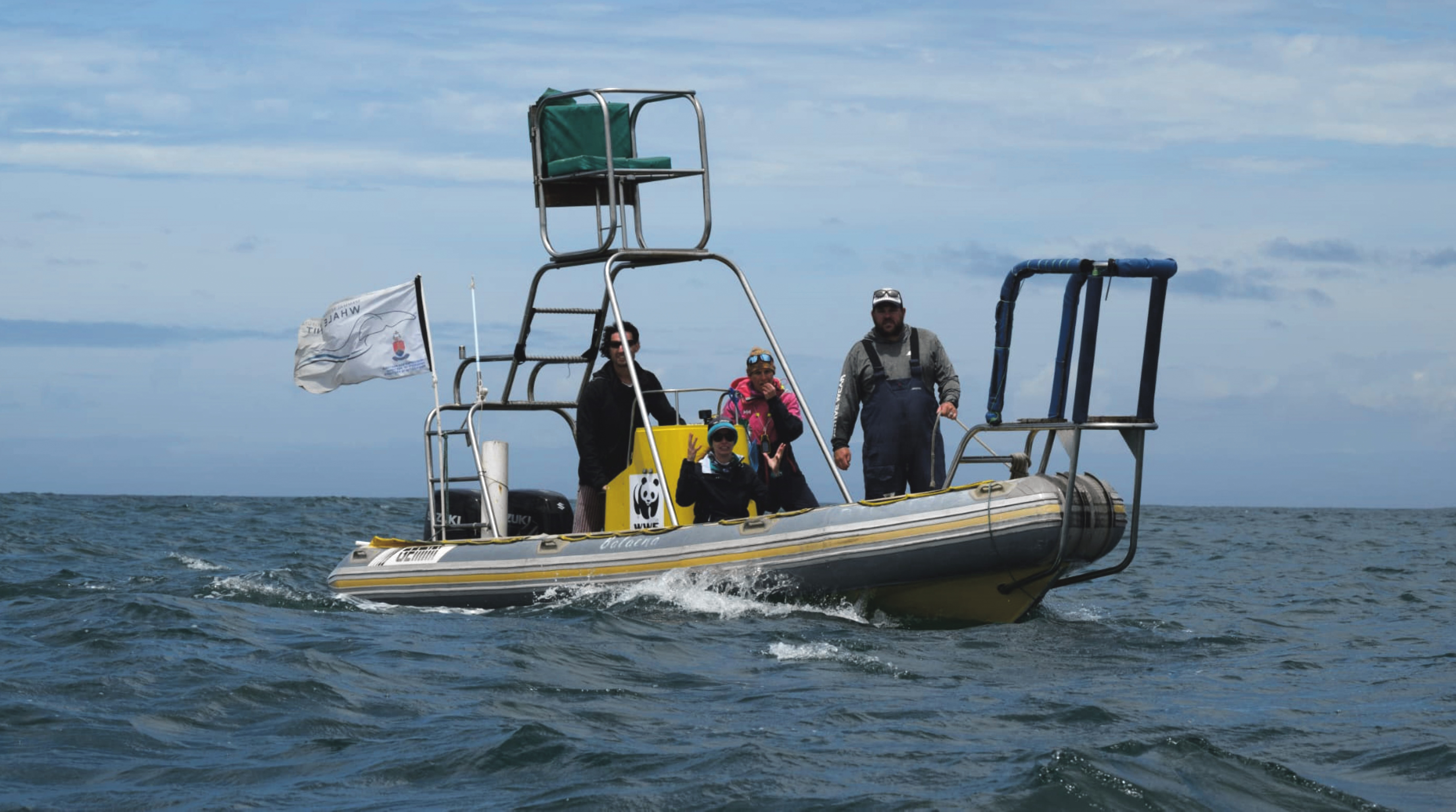OCEAN INTERACTION
Orca hunt was like ‘a military exercise’ — scientist describes unexpected encounter on Cape West Coast

In his 15-plus years of doing research on whales and other cetaceans, University of Pretoria scientist Chris Wilkinson has never experienced such an interaction.
Chris Wilkinson is a scientist. He thinks like a scientist. He makes sense of things like a scientist does. But one day he stared into the eyes of a giant killer whale (Orcinus orca) a few metres from him. Wilkinson describes the interaction without hesitation: “This was by far the best cetacean interaction of my life.”
To put things in perspective, an adult orca can weigh more than 10 tonnes, the weight of a pantechnicon truck. Orcas’ brains are huge – five times the size of the human brain – and with their processing powers they are capable of all sorts of skills and abilities.
To get to the heart and soul of this epic encounter, one has to go back to the morning when the team from the University of Pretoria’s Mammal Research Institute Whale Unit was doing what it normally does – searching for humpback whale supergroups feeding in the Cape’s West Coast region.

An Orca comes closer to the research boat. (Photo: Supplied)
A humpback supergroup is defined as a tightly packed group of 20 or more humpback whales feeding in close proximity. An hour or so into its journey, the team found what it had been looking for: A group of 60 to 80 humpback whales feeding on krill.
After an hour of collecting samples and taking identification pictures of the humpback whales’ flukes (the lobes of their tails), the team noticed six orca females and some juvenile males isolating a humpback yearling. It’s something he will never forget, recalls Wilkinson.
Their intelligence and group strategies are in a class of their own – astonishing.
“There was not just one but more than 20 of them towards the end. I’ve been doing this work for more than 15 years and have never seen a sight like this before. I’m not sure what it tells us. One thing we know is that these clever cetaceans are benefiting from the increasing whale numbers, not only on our coasts but also around the world.
“Their intelligence and group strategies are in a class of their own – astonishing. It was fascinating to watch what was akin to a military training exercise. There were probably three family pods of orcas involved and among them were juveniles who appeared to be learning from their elders what to do. The orcas were not fazed by the boat being there at all.
“The large male would swim next to the boat and stare at us, as though enquiring what we were doing. For a minute or so we stared back, hardly daring to move.”
It is now more than clear that small craft, like whale-watching boats, need to keep their distance from orcas.
The final moments of the young humpback’s demise were not seen – “that took place far beneath the surface”. But there were floating remains of the carcass which the research team retrieved for research.
“We were thinking how incredible to have witnessed something so unusual,” says Wilkinson.
But it was also a lesson well learnt. “A close encounter like this is an invaluable part of our ongoing research on the orcas, which up to now has been fairly limited.
“Apart from the carcass material we managed to pick up on the surface, it is now more than clear that small craft, like whale-watching boats, need to keep their distance from orcas as their behaviour can be unexpected and potentially dangerous.” DM

Close encounters. (Photo: Supplied)
The risk of ocean exploration
Anger and protest against proposed seismic blasting and gas drilling along the South African West Coast are growing. If it goes ahead, it could have a long-term effect on sea life and the cetacean populations that visit the coastline annually and attract thousands of visitors.
Research has shown that underwater ship noise can disrupt the whales’ use of echolocation to detect, track and capture prey, and seismic blasting could do the same. The noise could limit their foraging opportunities and force them to expend extra energy to locate prey. The development of sophisticated underwater acoustic technology is helping in understanding the impact of underwater noise. This includes measuring the response of animals to sound using digital acoustic recording tags.
For more information go to #NoToOilAndGas and #oceansnotoil.

The research boat. (Photo: Supplied)
Orcas and other things you might like to know
Orcas are an iconic species in South African waters. The subpopulation found in southern Africa is the most genetically diverse on Earth owing to its geographic positioning during the last global Ice Age. Several ecotypes exist along the South African coast and Marion Islands, ranging in size, habitat use and diet.
Orcas are one of the most intelligent species on Earth, capable of problem-solving, communicating and even creating culture within their social groups. They are capable of coordinating attacks, even if their motivations are not yet understood. Starting in 2020 and intensifying throughout 2023, orcas have coordinated attacks on fishing vessels off the Iberian coast. Scientists believe the increased attacks indicate they are teaching each other methods of provoking humans and boats.
Orcas are cosmopolitan and are found in all the world’s oceans. The decreased whaling pressure and the increase in whales on the West Coast, coupled with everyone at sea having a camera on their phone in their pocket, mean that the number of recorded incidents will grow.
The good news is that the iconic southern right whales that visit the Cape waters every year do not appear to be the orcas’ target, nor do humans.
Research conducted by Andrew Foote, an orca genetics expert, found that orcas and humans share an ability for culture-based evolution. In a 2016 study, Foote and a team of researchers analysed the genes of different orca pods and discovered that distinctions in genes coincided with distinctions in culture, such as group social behaviours. Before this discovery, humans were the only known animals to evolve based on culture.
Orcas are often called killer whales, and they certainly have the size to be listed among these massive ocean creatures. However, orcas are not actually whales; they are dolphins (and the largest species of dolphin at that). Taxonomically, they fall into the Delphinidae family, which are oceanic dolphins. The misnomer occurred when orcas were described as “whale killers” and then the words were flipped around to “killer whales”, which has erroneously stuck.
Read more in Daily Maverick: Cape’s missing great white shark mystery solved, with implications for cross-border conservation
The orca is one of the most ferocious animals out there. Easily identified because of its black and white pattern, it is often used as playful marine imagery. However, orcas are apex predators, meaning they are at the top of the food chain, and they can live to 90 years. They are protected under the Marine Mammal Protection Act.
Port and Starboard are two infamous orcas that swim off the coast of South Africa. Their names come from their rare collapsed dorsal fins: Port’s bends to the left and Starboard’s to the right. The great white sharks of South Africa had better watch out. Two orcas that have been known to hunt the great whites near the Gansbaai coastline were recently spotted in Cape Town’s False Bay, where great whites are known to have relocated. DM
This story first appeared in our weekly Daily Maverick 168 newspaper, which is available countrywide for R29.























 Become an Insider
Become an Insider
What an incredible experience and a great article. Thank you.
What a privilege, to be almost a party to the ripping to shreds of a whale by orcas. I’m sure the researchers were disappointed not to have seen the actual killing first hand. Never mind, I suggest a visit to the Kruger to see lions ripping a zebra or something apart instead.
You have clearly not read the article as nothing you say has any relevance.
A fascinating experience and article indeed.
Just one issue – calling Port and Starboard “infamous” is a “humanisation” that paints them in a negative light when all they are doing is what they are good at in order to be Orcas. We as humans do need to be careful of imposing our preconceptions / assumptions on other species.
I think Port and Sherry would be better descriptors of their wobbly fins.
So cool?
I was very fortunate to have two Orcas swim close to my boat in December while sailing between Dassen Island and Cape Town. It was the first time I have ever seen them in the wild. A very special, although brief, experience.
Well written article and I envy you that experience; I am fascinated by Orcas. I don’t agree that they should be seen in a “negative” light, IMO they are the most intelligent marine species and use this intelligence to great effect.
The warning to boats to stay away is good for all sea mammals – we harm them more than the risk they pose to us.
We once encountered a superpod day near Vancouver – about 80 Orca playing for hours (and cross-mating among pods). If the water was not frigid I would not have minded being in the water with them.
I am not a marine biologist but maybe someone can answer. As I’ve said, a great article but, what worries me is should there be so many sightings in our coast. This is really warm water for them. Have the Orcas run out of food in the Southern ocean?
They live everywhere, even the tropics with 28 degree water, and they are not limited to salt water – have been encountered 200km from ocean in one of the big north american rivers.
Once read they are, after humans, the most widely distributed mammal on earth.
Thanks Johan.
A fascinating species.
Very insightful article, many interesting facts I was not aware of. Impressive photographs.
Very special sightings. Lucky you! I feel for the Great Whites who get culled with surgical precision by the Orcas. Ive been eye to eye with a GW and I can tell you that its not a great experience!